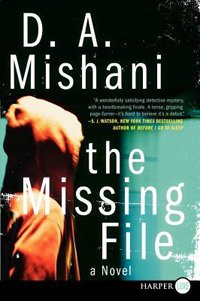
Readers accustomed to the typical confident detective with case in hand will be confounded by DA Mishani’s insecure Detective Avraham, whose despair deepens as his case goes nowhere. Halfway through the book, our lead investigator is still discouraged, his boss and teammates are about to seize the reins of the case, and we are none the wiser about what happened to the boy.
Meanwhile, in another unusual turn for the detective genre, the boy’s suspicious neighbour becomes a major focus of the novel, but not of the investigation. The middle section of the book centres on Ze’ev Avni, a schoolteacher who was both neighbour and personal tutor for the boy. He seems to know more about the victim than even his parents, but somehow his intimate knowledge of Ofer doesn’t raise flags for Avraham. Ze’ev must in fact chase the detective to get his attention long enough to share his thoughts about the investigation.
The dejected teacher’s obsession with the case and Avraham’s muddled progress run parallel for an inordinately long time without converging, and this is likely to try your patience. We are left to puzzle out what possible role the teacher may have in the boy’s fate. In a burst of inspiration, the teacher, whose true dream is to be a writer, begins to forge letters from the boy to his parents, and sets in motion a chain of events that propels the investigation forward. This is the point where, after lulling you into a sense of malaise and perhaps even boredom, Mishani pulls you in.
Just as the hapless Detective Mishani is called out of the country, a torrent of new evidence explodes the case into activity. The boy’s book bag is found in a dumpster and new information casts suspicion on the parents. The last third of the book is a quite suspenseful and we are as strung out and exhausted by the end as the detective and his team are.
Mishani takes a risk in structuring his book this way, frustrating us with both the existential travails of the teacher Ze’ev and with Avraham’s unexplained inertia in the case. His methodical exposition of the teacher, missing boy, and his parents, all dovetail with the equally murky mind of Avraham. As the book nears its end the detective struggles to keep control of his case, and with it, his own feelings of guilt and inability to confront the possible dark truths involved.
But don’t expect our hero to win the day and redeem himself in the finale. A rather hastily contrived romance near the book’s end seems to turn the case on its head. Suddenly, the truth again threatens to be buried forever as the story concludes with the statement ‘to be continued’. We are still left to wonder what Avraham’s real problem is. That is not to say Mishani is not very good at creating characters and breathing life into their motivations and desires. I wonder if he could have conflated two books into one and pared it down. However, the drawn out style of The Missing File gives it its power in the end.
The numerous writing tropes employed by Mishani, the opening riff on Hebraic detective novels, Ze’ev’s writer’s block, his forged letters, the detective’s inability to express the primal scene of the crime – these may be his meta-commentary on the art of writing. I’m curious to see if Mishani’s literary noir extends to the next Detective Avraham book.
HarperCollins
Print/Kindle/iBook
£3.99
CFL Rating: 4 Stars